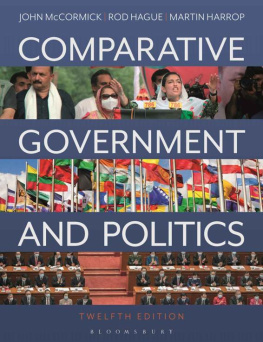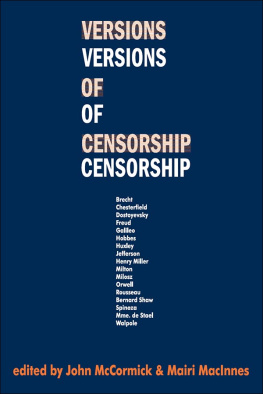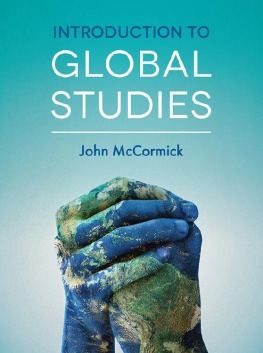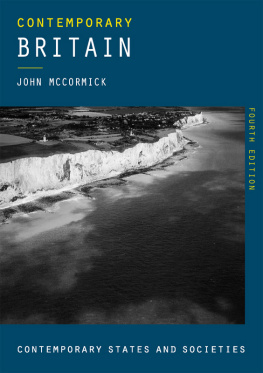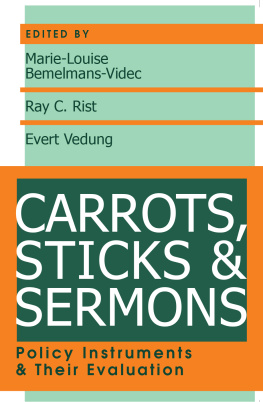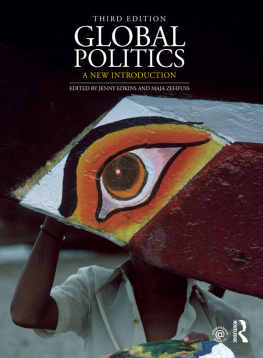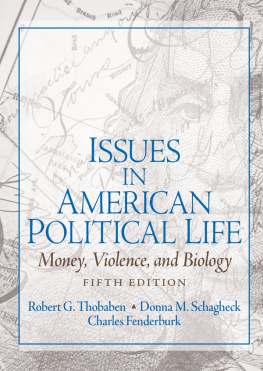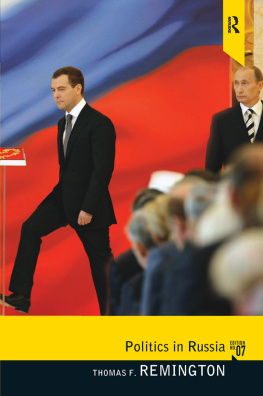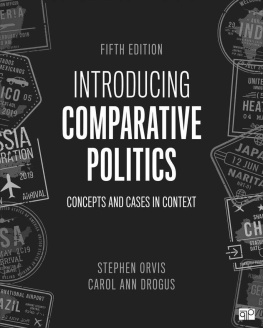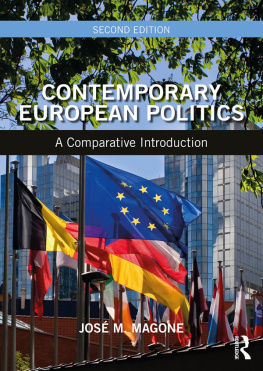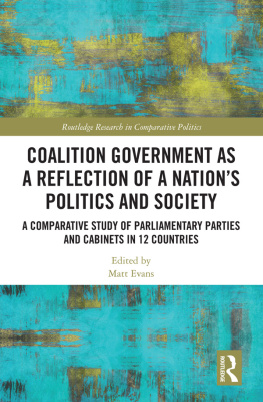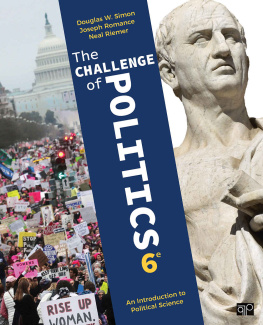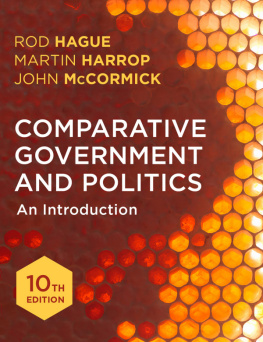
PRAISE FOR COMPARATIVE GOVERNMENT AND POLITICS, TWELFTH EDITION
This is an invaluable overview of comparative government and politics. Written in an accessible manner and within a clearly organized framework, its a first-rate teaching resource for any foundational course in comparative politics. Pippa Norris, Harvard University, USA
This is a truly wonderful introduction to comparative politics. Not only does it cover a comprehensive range of complex topics in a very approachable and accessible way but, better still, it is full of examples from all regions of the world. I wish I had had this book when I was an undergraduate student. Raul Gomez, University of Liverpool, UK
This text provides comprehensive, systematic, and up-to-date coverage of major topics across the vast field of comparative politics. At this time of democratic backsliding and autocratization, it commendably strives to provide even coverage of democratic and autocratic settings. By doing so, it tackles the disciplines persistent bias towards democracies. Anar Ahmadov, Leiden University, Netherlands
An accessible and well-presented introduction that provides students and instructors with a modern view of the field in all its breadth. This new edition is fully up to date and takes seriously the diversity both in the discipline and, crucially, also in the political systems it features. Patrick Theiner, University of Edinburgh, UK
Comprehensive and clearly written, this text provides a solid grounding in the comparative method, complemented by timely real-world examples of the ways in which comparative politics can be applied, thereby helping students to make sense of complex and confusing events in the world today. Jennifer White, University of Georgia, USA
This new edition of a classic of the discipline provides fresh new context for how the key theories of comparative politics still matter for understanding the world around us. The wealth of evidence included will inspire students to research topics of their own interest and the narrative offers a great one-stop shop for instructors looking to efficiently deliver their course. William Daniel, University of Nottingham, UK
The textbook is an excellent resource for students interested in comparative politics. In this revised edition, the authors combine the latest pedagogical tools with extensive geographical coverage and theoretical insights, providing a comprehensive overview of the field. Perfectly suited for both instructors and students. Ion Marandici, Rutgers, USA
Comparative Government and Politics continues to be an excellent introduction to the field. Not only does this textbook cover a broad range of important topics, but it is written in an approachable style that is suitable for students with no background in the subject matter. Matthew Jones, University of Greenwich, UK
Comparative Government and Politics is an excellent introductory textbook. It is well structured and perfectly introduces key theories, methods, and concepts to undergraduates. The use of relevant contemporary examples throughout the book makes it particularly interesting for students just beginning their study of comparative politics. Claudia Lueders, Oxford Brookes University, UK
Brief Contents
Detailed Contents
Illustrations and Features
SPOTLIGHTS
EXPLORING PROBLEMS
USING THEORY
FIGURES
TABLES
)
MAPS
Preface
In Peru, a former schoolteacher with little political experience is elected president. In Tunisia, years of steady democratization seem to be threatened as political leaders suspend the legislature and declare emergency powers. Indias reputation as the worlds largest democracy is sullied as the governing party continues to impose its discriminatory notions of a Hindu nationalist state. In Botswana and Costa Rica, the steady development of stable democracy continues, often unnoticed in much of the rest of the world. On every continent, governments continue to struggle to address the Covid-19 pandemic, faced with publics that are often deeply divided over the best steps to take.
Why is all this happening, and what does it mean? How can we make sense of the political news from countries about which we often hear much too little? Are these developments unusual, or are they part of wider trends around the world? Why do different political systems operate on different rules? How do the powers of different governments explain their actions, and how do their citizens feel about the changes they see? Why are some countries ruled by a president and others by a prime minister? Why do some countries have a single dominant political party while others have dozens? And what is the difference between a supreme court and a constitutional court?
These are the kinds of questions addressed and answered by comparative politics. As well as helping us identify the rules of government and politics, comparative analysis also helps us make sense of political news from around the world. And as advances in technology, trade, and science bring us all closer together, so can developments in one part of the world have effects on many others, making it more important that we understand the changes we see. By studying different governments and political systems, we can better understand not just the country in which we live, but also other countries, their governments, their political decisions and their people.
This is a book designed to introduce you to the study of comparative government and politics. The goal of the chapters that follow is to provide a wide-ranging and accessible guide for courses and modules in this fascinating and essential sub-field of political science. We will look at the methods and theories of comparison, at the differences between democracies and dictatorships, at the many intriguing forms in which the institutions of government exist, and at the ways in which ordinary people take part or are prevented from taking part in government and in shaping the decisions that affect their lives.
As with the last edition, the book takes a thematic approach to comparison, with chapters divided into three broad groups:
The first group () provides the foundations, with a review of the key concepts in comparative politics, followed by chapters on the methods of comparison, on the reach of states and nations, on political culture in its different forms, and on the features of democratic and authoritarian regimes.
The second group () focuses on institutions, which constitute the core subject matter of political science. It opens with a chapter on the constitutions that help us make sense of how institutions work and relate to one another, and of the supporting work of courts. This is followed by chapters on executives, legislatures, bureaucracies, sub-national government, and the media.
The third group () looks at political processes, beginning with a survey of political participation, then looking at elections, parties, and interest groups, wrapping up with chapters on public policy and political economy.
The book is designed to meet the needs of students in different countries, approaching the study of government and politics from different perspectives. You may be using it as part of the first (and perhaps only) course or module you are taking on government and politics, as part of a course you are required to take outside your major subject, as part of a course you are taking simply because you are interested in politics, or as part of a course you are taking in your major course of study. Whatever your background and motivation, the chapters that follow are designed to help you find your way through the many different forms in which politics and government exist around the world.

